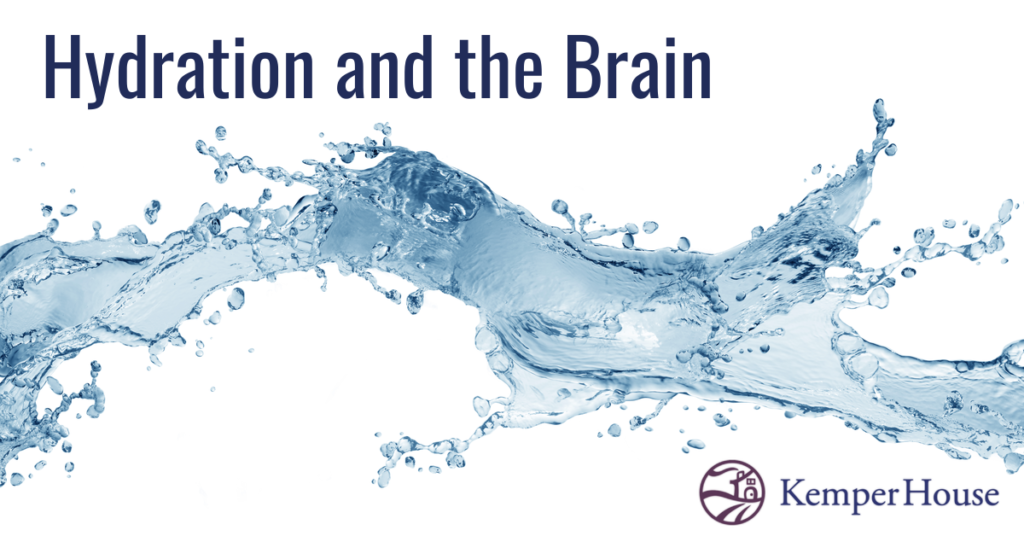
Hydration and the Brain
By Nicole Gould, RDN, CLT
Our brain cells rely heavily on proper hydration. Water influences cerebral blood flow, delivers nutrients to the brain, removes toxins, normalizes blood pressure, and is necessary for the brain to function properly. Recent literature suggests that even mild dehydration – a body water loss of 1-2% – can impair cognitive functions like attentiveness, critical thinking, and memory. The simple fact is, if you are not properly hydrated, your brain suffers. If you are concerned about the health of your brain and optimizing your cognition, drinking water should be at the top of your priority list.
How much do you need?
Though specific water requirements vary by age, weight, activity level, and medications, a general minimum requirement is about 5 – 6 cups (40-48 ounces) per day. Sure, you could drink this much and survive, but if you are looking to better your health and your cognitive function, doing the bare minimum isn’t going to bring about improvements. Start by drinking half your body weight, in ounces. Brain health experts suggest aiming for 8 – 10 cups (or more if active) for those looking for cognitive benefits.
Tips to Increase Your Water Intake
- Start every morning with a full glass (or two) of water. Before you have coffee, tea, or anything else, finish at least 1 glass of pure water.
- Keep a water tally sheet. Every time you have a glass, mark it off.
- Set alarms throughout the day or make non-negotiable times to drink water, so you drink even if you aren’t thirsty.
- Get a container or pitcher that holds 64 ounces (or your daily requirement) to keep on the counter or in the fridge. Challenge yourself to finish the pitcher every day.
- Keep a reusable bottle of water with you wherever you go. If it’s by you, you are more likely to drink it.
- If you go for a walk or a drive, take water with you.
- Drink a glass with each meal and snack. If you eat, you drink water.
- Add a natural punch of flavor to your water by adding cucumber slices, fresh herbs, or a squeeze of lemon, lime, orange, or grapefruit.
Make a conscious effort to increase your water intake for a few days. Eventually, drinking water will become a habit that you won’t even have to think about – and your brain will thank you.


